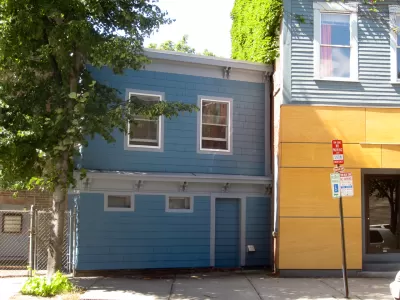Many transportation challenges could be solved by a more informed understanding of price elasticity of demand, according to this article.

Joe Cortright thinks that many transportation planners would flunk Economics 101, based on rampant misconceptions of one critical concept:
The most basic concept in economics is that higher prices lead to less consumption, yet this fact is routinely ignored in transportation planning and policy.
If we got the prices right, many of our most pressing transportation problems would be much easier to tackle[.]
The price of gasoline provides the clearest example of the concept, according to Cortright; i.e., higher fuel prices equate with less driving. The price of gas compared to the number of miles driven by Americans since the late 1990s illustrates Cortright's point.
Cortright explains the nuance of elasticity in more detail before noting that transportation planners often disregard price elasticity when planning future transportation routes. Portland's regional government, Metro, provides an example.
FULL STORY: Transportation planners flunk Econ 101: Price elasticity of demand

Maui's Vacation Rental Debate Turns Ugly
Verbal attacks, misinformation campaigns and fistfights plague a high-stakes debate to convert thousands of vacation rentals into long-term housing.

Planetizen Federal Action Tracker
A weekly monitor of how Trump’s orders and actions are impacting planners and planning in America.

In Urban Planning, AI Prompting Could be the New Design Thinking
Creativity has long been key to great urban design. What if we see AI as our new creative partner?

King County Supportive Housing Program Offers Hope for Unhoused Residents
The county is taking a ‘Housing First’ approach that prioritizes getting people into housing, then offering wraparound supportive services.

Researchers Use AI to Get Clearer Picture of US Housing
Analysts are using artificial intelligence to supercharge their research by allowing them to comb through data faster. Though these AI tools can be error prone, they save time and housing researchers are optimistic about the future.

Making Shared Micromobility More Inclusive
Cities and shared mobility system operators can do more to include people with disabilities in planning and operations, per a new report.
Urban Design for Planners 1: Software Tools
This six-course series explores essential urban design concepts using open source software and equips planners with the tools they need to participate fully in the urban design process.
Planning for Universal Design
Learn the tools for implementing Universal Design in planning regulations.
planning NEXT
Appalachian Highlands Housing Partners
Mpact (founded as Rail~Volution)
City of Camden Redevelopment Agency
City of Astoria
City of Portland
City of Laramie





























